
Interview with Armenian Redwood Project founder Raffy Ardhaldjian
Interview with Armenian Redwood Project founder Raffy Ardhaldjian
June 12, 2015
Horizon Weekly
By Vahram Emmiyan
The Armenian Redwood Project: Improving the lives and well-being of Syrian-Armenians impacted by the war in Syria
The Armenian Redwood Project: Improving the lives and well-being of Syrian-Armenians impacted by the war in Syria -
Interview with Armenian Redwood Project founder Raffy Ardhaldjian
1- What can you tell us about Armenian Redwood project?
The ARP is a project and not another organization. It’s an organizing platform that aims at (1) showcasing to the Armenian Diaspora that while Armenians are a footnote in the larger Syrian war context, we today have an undeniable refugee problem and (2) to develop actionable steps towards alleviating the overwhelming effects on our community in Syria and the ones internally/externally displaced by the war.
I have often commented on the difference between having “organizations” (we have lots of those) and Institutions. Institutions are necessary for nation building and we have very few effective ones. In this case, neither the GoA nor various Diasporan organizations have stepped up to what the situation is actually calling for. On this centennial year, when the Near East Relief’s work has been praised across the globe, it is incomprehensible to me the collective intervention of our trans-Nation. We clearly do not seem as organized to deal with current burning issues as with historic commemorations.
The ARP, as I said is a nothing but a catalyzing organizing platform that conducts research, frames & structures projects, and then engages the larger public once a scalable model has been found. In our case, after months of research we focused on a “rent subsidy” model in Armenia for Syrian refugees as a first step. We realize that the problem is bigger than just “short rents” and we’ll attempt to intervene in other fields as financial capabilities become available. This is a humanitarian crisis that will not just go away. Additionally, doing nothing (or the minimum) and adopting a “to each his own” approach is also not acceptable to us. On the Centennial, if we are truly ONE NATION, then our actions need to reflect that. I respect all the effort that went into supporting our community in Syria in the last 4 years. But given the scope of the damage, we need to collectively engage in 100x more. And soon.
2- What are the main problems facing the Syrian-Armenian refugees in Armenia?
That’s an overwhelming question and it depends which segment of the refugees you are talking about. There are widows with kids, elderly, unemployed with skills that are not transferable into Armenia’s economy, young families with kids, youth needing university education, traumatized refugees needing mental health, families that have been split, etc. There are also families that have personally requested that we help move them out of Aleppo because of financial and psychological distress.
So, I do not want to overwhelm your audience with this question. In our analysis, we view affordable housing as a big problem in Armenia in general, and to the Syrian urban refugees in particular. We think we can make a focused impact through various phased interventions over a period of time. Our first phase involved “rent subsidies” to allow the arriving families, or the vulnerable ones to adjust. You know Yerevan has basically become a “City State” where everything is concentrated. The real estate speculation of the last few years has also raised prices and makes it unaffordable to many to live in the capital city. And yet, the capital seems to be the main destination for many Syrians for now. I’m not sure how many will remain in Armenia and make it their home in the long run. But for now, we view assisting Syrian refugees in Armenia a win/win situation; the Syrian refugees can find safe refuge in Armenia and at the same time they bring invaluable human/social capital with them that can benefit the country. Solving the affordable housing problem requires a serious Armenian institution. The alternative solutions I’ve seen so far, have either been badly planned “concept projects” that got nowhere besides press releases, or individual opportunistic construction efforts fueled mostly by Turkish construction materials which result in unaffordable prices to refugees. Syrians who can afford market prices have already bought apartments. But most cannot. What we have seen is that when a family’s savings goes below a certain level, then migration becomes an serious consideration. In this context, we believe that if we find ways to solve the affordable housing problem for Syrian refugees, we can potentially provide solutions to a bigger problem for Armenia.
Other problems also are no different than the ones Armenia’s population faces: lack of well-paying jobs, etc.
On the positive side, we’ve been seeing a nice integration happening. Armenia’s population and government have welcomed Syria’s refugees and made them feel “at home”. The government provides invaluable social, health and educational services to refugees. Syrians - who are hard workers- are seen everywhere in the service economy. And that’s a good thing.
3- In light of those problems, can you tell us also about the 3 party Memorandum of Understanding recently signed between Oxfam in Armenia, ARP and UNHCR?
The MOU is a framework of cooperation. Like I said, the Diaspora did not have appropriate institutions with “boots on the ground” and capabilities to aid with such a large inflow of refugees. We were very impressed with UNHCR’s representative, Mr. Christoph Bierwirth initiatives to aid Syrian refugees in Armenia. We wanted to further “augment” Mr. Bierwirth’s effort and show that the Diaspora wanted to “partner” with the UN. We also found a genuine partner in Oxfam Armenia that has a long history of assisting refugees and with the Syrian Armenia Relief Fund based in Los Angeles. The 3 party MOU, brought together the Armenian Diaspora, along with two international humanitarian organizations to make sure that we cooperate around specific initiatives and also coordinate our efforts. This is what I mean by “Institutional” involvement. And I want to mention here that both the UNHCR and Oxfam appreciate it when the Armenian Diaspora cooperates under one umbrella. Its effective and frankly it works !
4 - What are the benefits of such a collaboration compared to the alternative of working separately?
The benefits again are mostly in institutional effectiveness. We served as a conduit to channel funds and key policies on this issue. UNHCR and Oxfam interface regularly with the Ministry of the Diaspora where key policies are coordinated. We also believe that once such a partnership is built, other possibilities could be structured in other jurisdictions. My personal working relationship with the UN in Armenia as a cooperating partner, goes back over 18 years. The other alternative is augmenting the effect of successful interventions. The rent subsidy project is a model that works, and was introduced in Armenia by UNHCR. This model is very different than what some other local NGOs did in Armenia with refugees by keeping them in “shelters”. The rent subsidy model allows refugees to integrate where they find adequate opportunities, and does not create potential “migrant ghettos” amongst its other benefits. Needless to say we are very grateful to our international partners Oxfam and UNHCR for the valuable humanitarian work they are doing in Armenia. In addition, we also applaud SARF’s (SARF is comprised of over 12 Diasporan organizations) initiative to join these existing efforts with proven partners. In a world constrained with resources, we view this partnering model as a superior alternative to “working separately”.
5-This agreement extends only on a 12 month period. Why? And is it renewable?
International organizations have planning horizons and budgets and thus think in 12 months increments. Additionally, the situation in Syria is dynamic and always changing, and requires flexibility. We knew that Aleppo could face challenges in 2015, and wanted to be ready to absorb refuges that wanted to find refuge after Lebanon closed its borders to Syrian refugees. Actively engaging in augmenting the rent subsidy capability for 2015 was a top priority. For me, I’d much rather work on a capability that collectively provides housing to 800+ household this year than give interviews about future housing complexes that might (or not) be ready in 5 years.
We have agreed with our partners to organize a workshop this fall to discuss sustainable solutions going forward.
That said, this problem requires a Pan Armenian coordinated effort and institutional capability. This cannot be handled with a community picnic fundraiser. I want to stress that it requires coordinated pan-Armenian efforts, and not fragmented efforts by individual organizations. We have advocated this approach consistently in the Diaspora and are hoping that there will soon be such an initiative to collectively raise funds for Syria’s affected Armenian community (including the displaced) and build a platform from which to work from. Once that happens, then we’ll have answers to what happens after 12 months on this specific project. As a nation, and on the eve of the centennial of the Genocide, we cannot adopt a “to each his own” approach to this problem. Almost 100 years ago, there were 1000 US citizens that participated in the Near East Relief efforts, besides the millions that were raised to save the survivors of the Genocide through citizen philanthropy. Our recent blog posting reflected on this. 100 years later it, we are hoping that the Diaspora’s nationalism can partly be channeled into conscious civic responsibility. Unlike back then, folks don’t need to travel to the Syrian desserts to deliver help. A collective platform to act on our values will do.
6- What’s next for the ARP ?
We are going to launch a small crowdfunding campaign on Indiegogo during the week of June 8th and we are hoping that it will be vastly oversubscribed. Its entitled [#RootsForRefugees]. We will then focus most of our attention to a mega fundraising effort in early 2016 and hope to bring most of the Armenian Diaspora under one organized effort. This is the biggest humanitarian issue of our time. Fatigued or not, as a surviving nation, Armenians will need to address their share of the burden, and show support to their brothers and sisters.
I thank the Diaspora for its support and for trusting us. It’s been a true privilege to be part of this effort.
NEWS
NEWS
Launch of Emergency Housing Project
Emergency housing assistance to displaced Syrian Armenians
March 17, 2015
Oxfam in Armenia, along with the Armenian Redwood Project (ARP), a coalition of various Armenian Diaspora entities, announces its commitment to augment the valuable efforts pioneered by UNHCR in Armenia in 2014 in the frame of its emergency housing project on the provision of rental subsidies to vulnerable families displaced from Syria, seeking protection in Armenia.
Launch of Emergency Housing Project
Photo Credit: Mrs.Ghadah Alrawi
The twelve month-assistance project, based on a tripartite Memorandum of Understanding between Oxfam in Armenia, ARP and UNHCR, was launched in February 2015. It is funded by a total joined grant of $250,000 from the Oxfam in Armenia and Armenian Redwood Project. It will be implemented by Mission Armenia social NGO which has been operating emergency housing projects, including, rental subsidies scheme for Syrian families, through the 2014 UNHCR funded projects. The program will benefit newly arriving refugees through the year of 2015, as well as, a number of vulnerable families arrived earlier, but still in dire need of emergency assistance.
Rental subsidy, which will be provided to the families through bank transfer, aims at creating some form of an interim “safety-net” program with possible longer-term housing solutions being explored in the meantime.
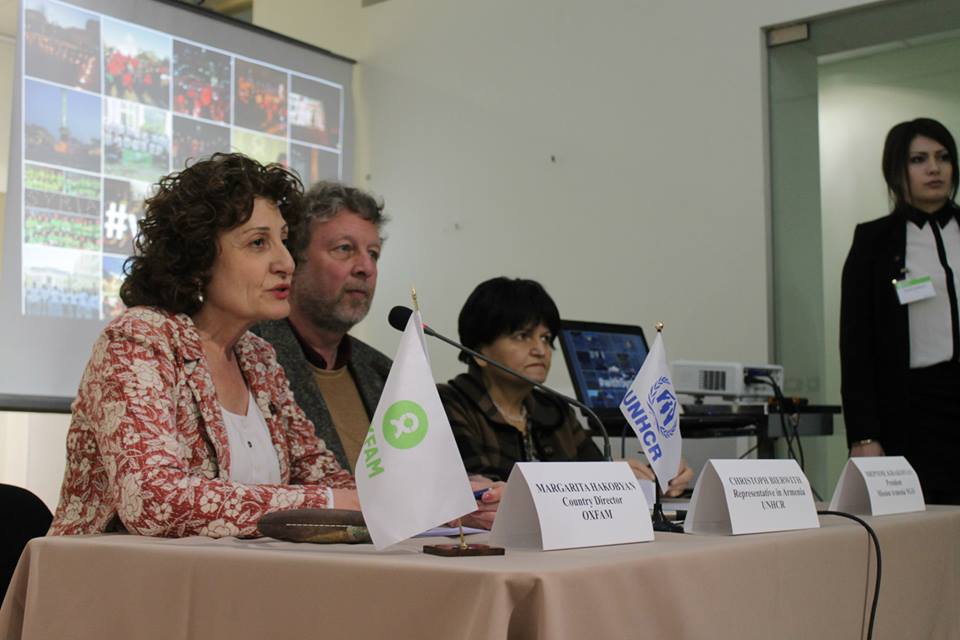
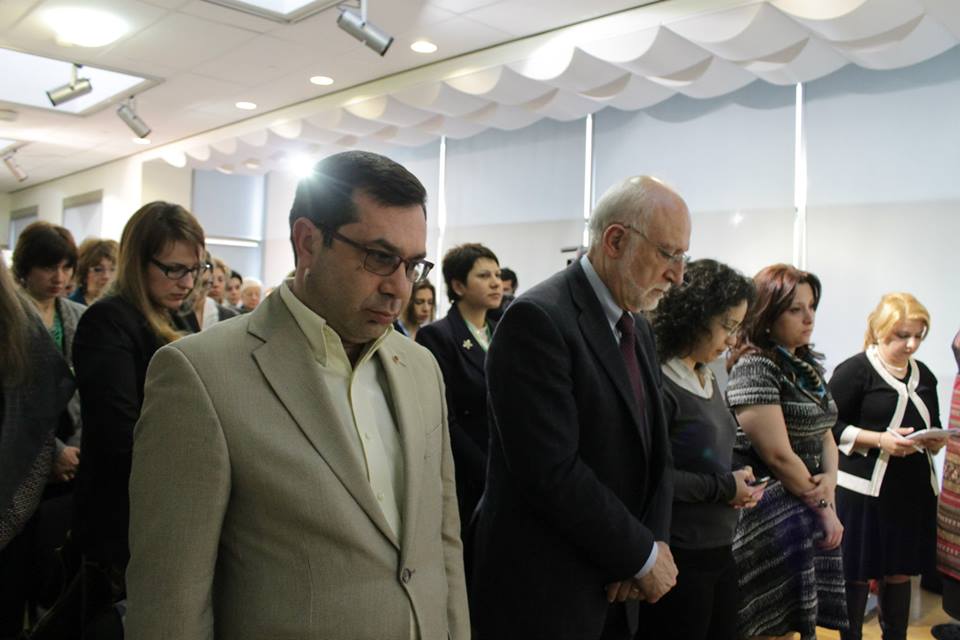
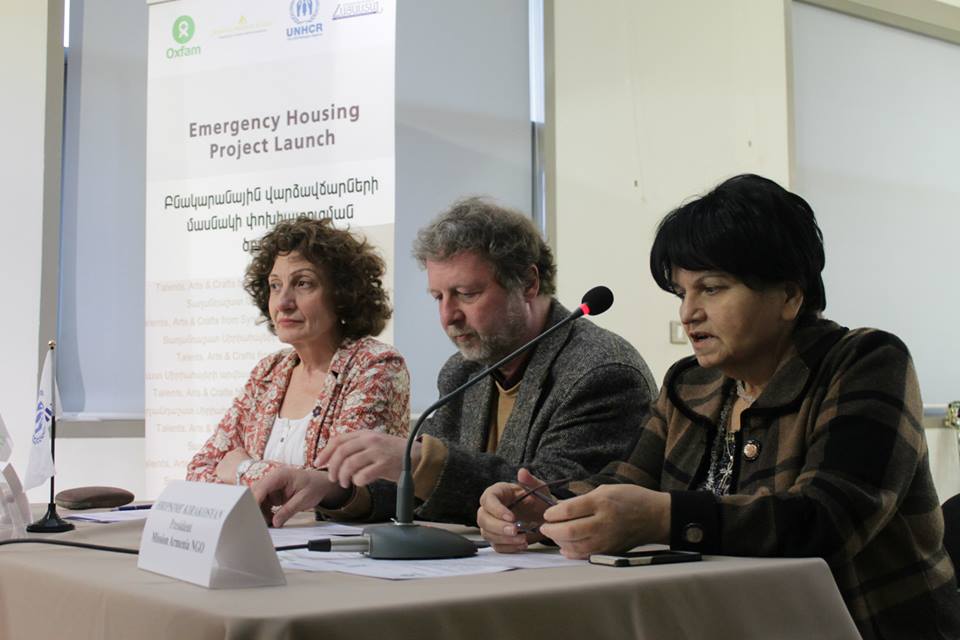
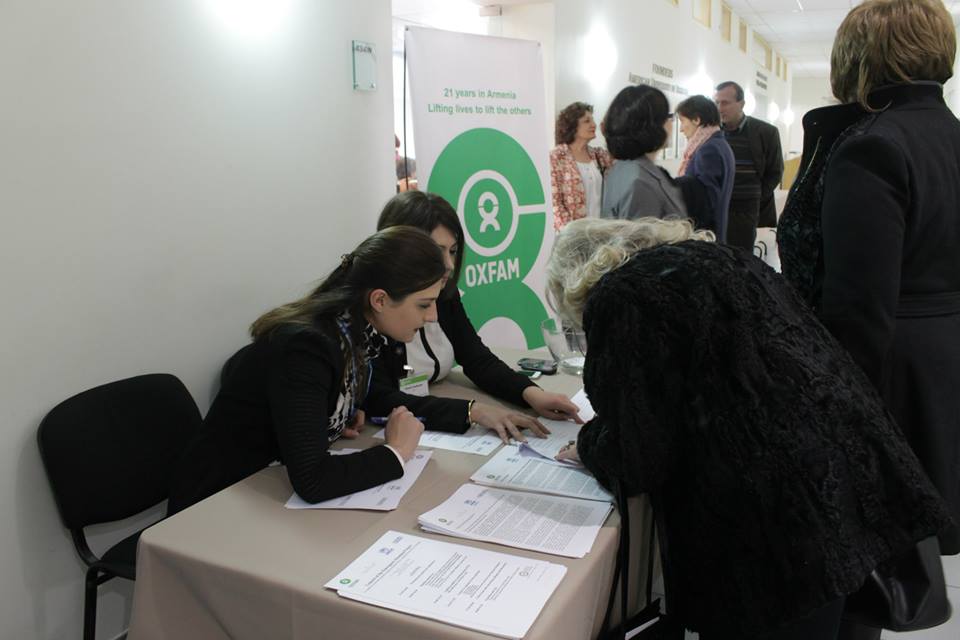
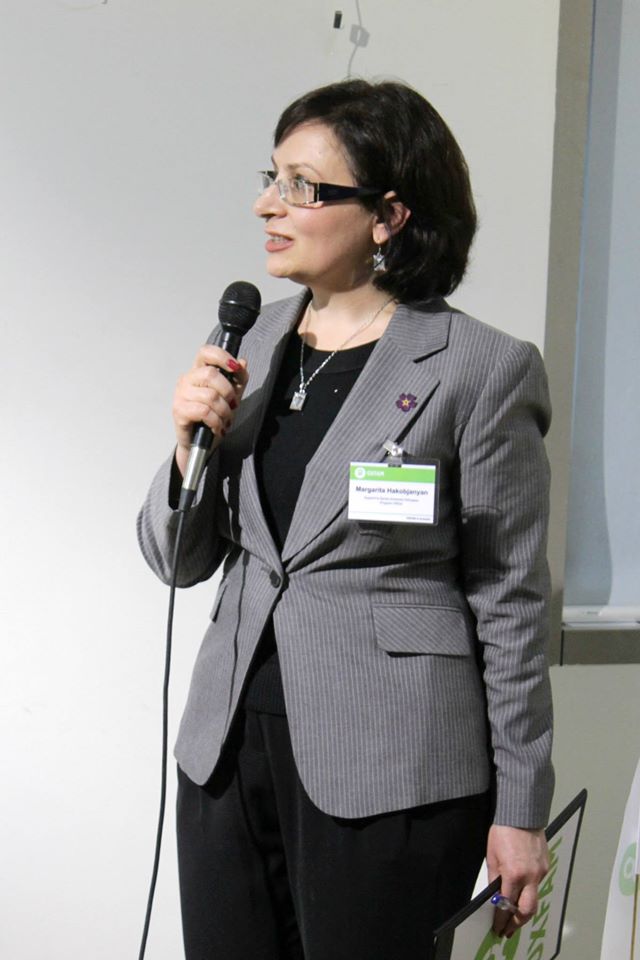
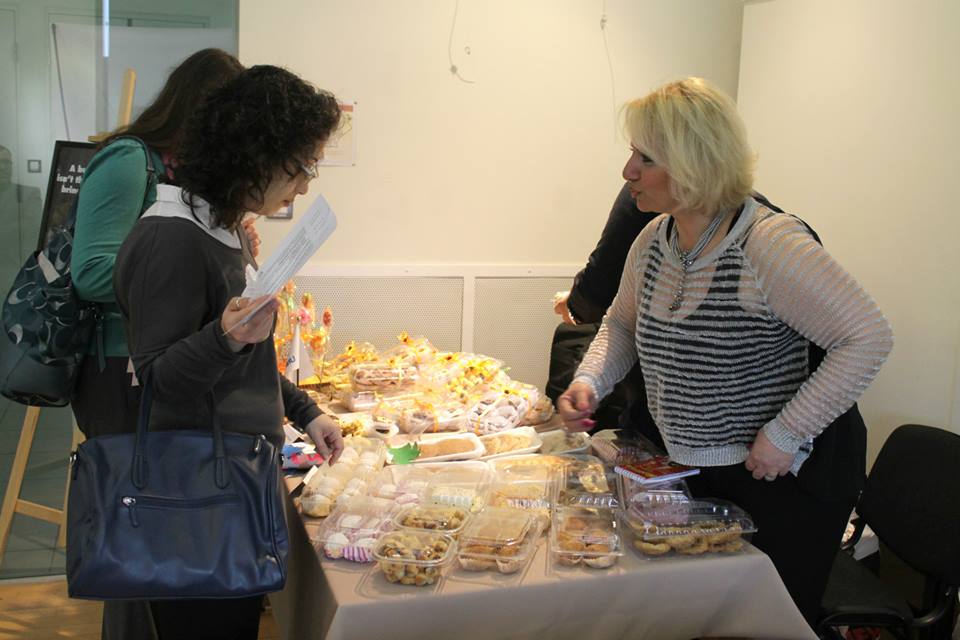
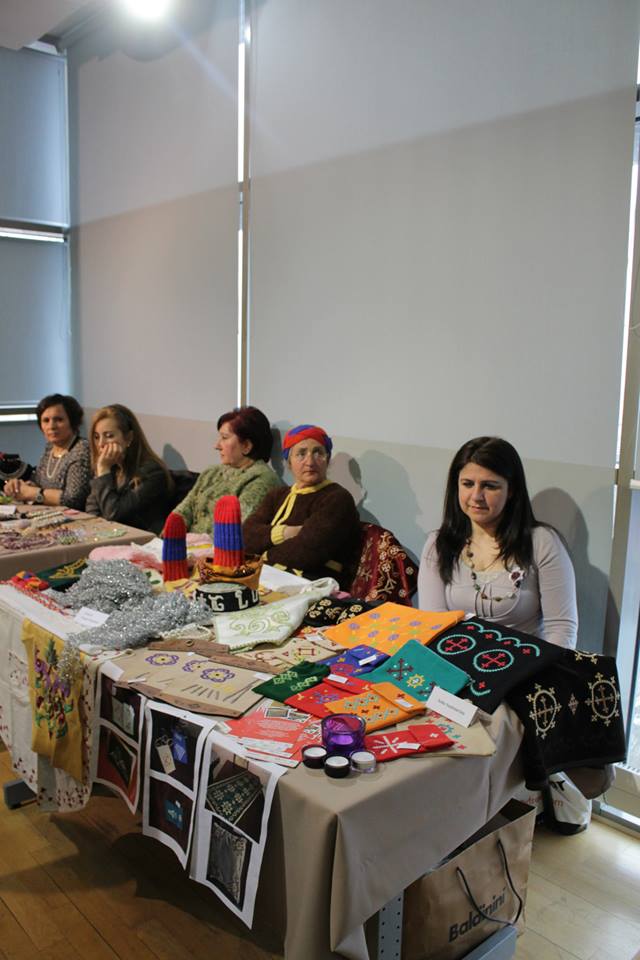
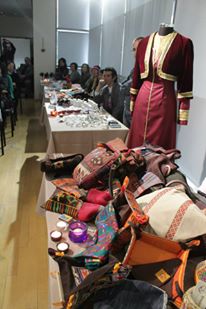

From Humanitarian Responce to Durable Solutions, Yerevan February 24 2016 Workshop
February 24 2016
From Humanitarian Responce to Durable Solutions, Yerevan February 24 2016 Workshop
February 24 2016
The Ministry of Diaspora of the Republic of Armenia, the Armenian Communities Department of the Calouste Gulbenkian Foundation, Armenian General Benevolent Union and the Office of the United Nations High Commissioner in Armenia have jointly organised a Workshop titled: From humanitarian responses to durable solutions - Facilitating local integration in Armenia of persons displaced due to the conflict in Syria. The meeting, held on 24 February in Yerevan, brought together various government ministries, civil society actors, international organisations and potential funders to strategically plan and coordinate efforts to help with the integration of refugees from Syria into Armenia.
The Armenian Redwood Project - a collaboration platform of various Armenian Diaspora groups - participated with 3 members from California and actively engaged in the working groups of the workshop.
Photo credit AGBU Yerevan
Raffy Ardhaldjian addressing the audience with a keynote speech for the strategic directions part of the workshop stressed the need for a comprehensive plan for integration. A suggested sampling of policies prepared by the Armenian Redwoood Project were also presented to the attendees.
Finally, the Armenian Redwood Project on behalf of its various Diasporan stakeholders, announced to the attendees that it was matching the UNHCR rent subsidy program budget for 2016 and collaborating for the 2nd year in a row with Oxfam Armenia. The Armenian Diaspora's consortium's grant is aimed to complement the gap in UNHCR's 2016 budget. UN budgets have stressed across the region due to the unprecedented refugee crisis in the region. A formal announcement on the grant will be released to the media shortly.
![[Armenian Redwood Project]](http://images.squarespace-cdn.com/content/v1/539fe471e4b033a62777341b/1419667464987-MBMT83TNVVWRMPPBZAXP/ARP_logov2.png?format=1500w)



